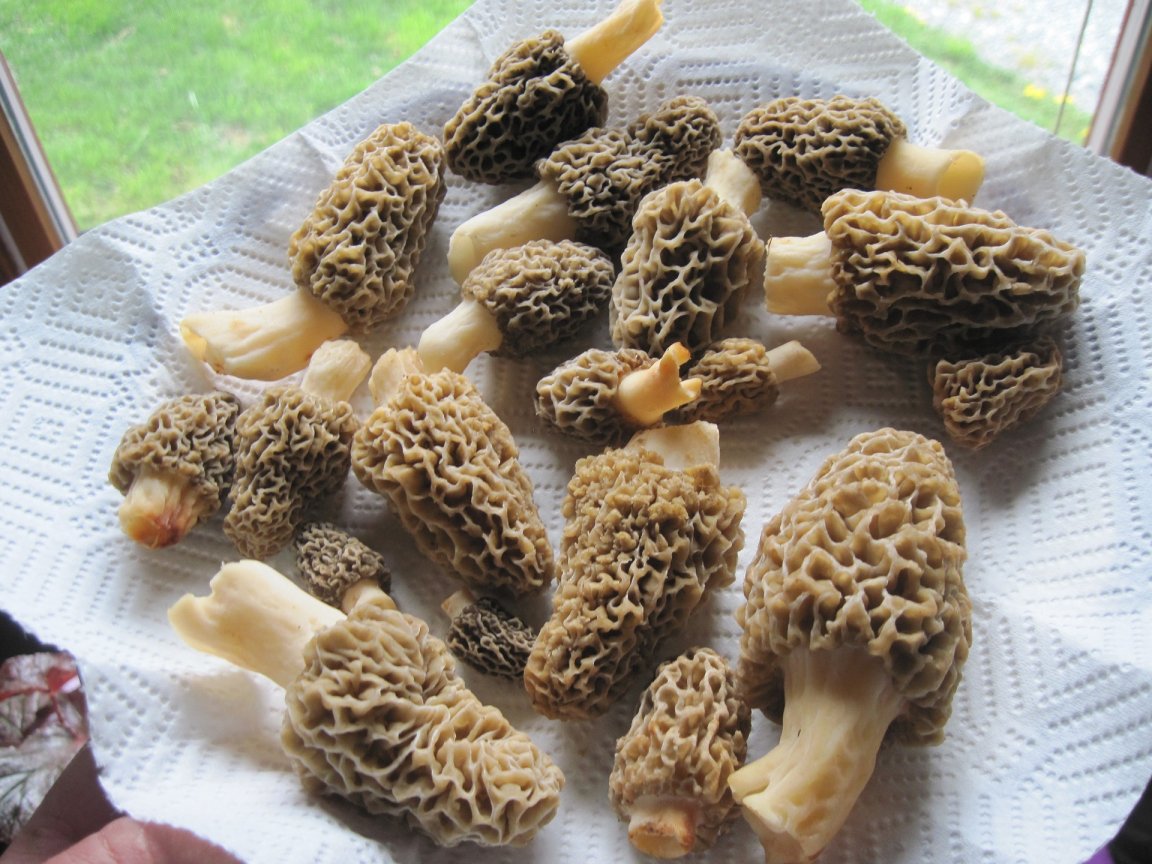As a kid, I never knew that folks hit the woods to hunt morel mushrooms. My dad and I would go for walks during the evenings in spring as the weather warmed up. Our strolls around the block were mostly so he could sneak in a cigarette, but I recall one night, we found a pile of morels. I had no idea what they were, but dad was excited. We made baskets out of our shirt fronts and hauled the morels back home. Over the years, we expanded our walks and found more mushrooms, never venturing more than 15 minutes from our front door. If you want to find a pile of urban morels this spring, here is where to look.
Hunting for Morels in the Woods vs. Your Neighborhood
Where I live now is surrounded by a nature preserve and hiking trials with countless north-facing hills with all kinds of deadfall—perfect places to find morels. It’s still an urban setting, I’m just lucky enough to live close to a river with public access to bottomland forest. You would think I’d cleanup during morel season, but there are several hunters who have been hitting these woods for decades and get to the mushrooms before anyone else does. There’s a lot more “pressure” in the timber—regardless of where you live— come springtime, and most core hunters know exactly where the morels will be and pick them first.
On the flip side, there’s zero pressure around your neighborhood. For instance, I’ve never run across another mushroom hunter while walking my dog. There are good places to find small patches of mushrooms, and sometimes you will run across enough morels to fill your hat. And if you’re not a seasoned mushroom hunter, searching for them in your neighborhood gives you a better chance at finding morels than in the woods with veteran hunters.
Also, if you are hunting morels in a neighborhood, get permission from the property owner before you walk across their lawn. Don’t trespass.
Focus on Runoff Areas and Ditches
Most subdivisions have a drainage system that funnels the water away as the snow melts and when it rains. Where I live, a series of interconnected ditches that are about 20 feet deep do this. They are always moist and each of them has a mix of trees that are alive and deadfall. Every spring I can count on finding a few morels in them. Because they are often wet, but also get sun, drainage ditches are ideal locations for morels to grow. Look on the edges of brush piles where your neighbors dump leaves and other yard waste. Check around the dead trees as well.
The flat ground that surrounds the top of the ditches is also a hot spot for mushrooms to sprout. If it’s a wet spring, these areas are getting a lot of water, but also direct sunlight. Morels can grow quickly in these spots, but rot just as fast. They can get clipped by your neighbor’s lawnmower too.
Hedgerows Hold Moisture
The neighborhood I grew up in had a line of bushes that ran the entire length of our street. There were morels growing under those hedges every spring. My dad and I only had to cross the street to come back with a bowl full of mushrooms. The ground under bushes often stays wet because it’s in the shade most of the day. But if the sun hits it, there’s good opportunity for morels to grow, so be on the lookout.
Read Next: How to Hunt Morel Mushrooms Like Your Life Depends on It
Grass Patches Between Buildings
Those of you who live in a metro area where the houses and apartments are close together need to seek out the small strips of grass and dirt in between buildings if you want to locate morels. These patches stay wet during the spring because they don’t get much air moving through them or sunlight—an ideal spot for mushroom growth.
For folks in suburbia, if there is an area near your neighborhood that is run down, overgrown, or just has dilapidated buildings, check it for morels. As a kid, there was a property owner on our block that had several old wooden garages with lots of unkempt grass and brush surrounding them. My dad and I could always find mushrooms growing in the bare spots right on the edge of the overgrowth. Sometimes we had to push back the brush with our feet to reveal a morel, but we would typically come away with a small bounty.
